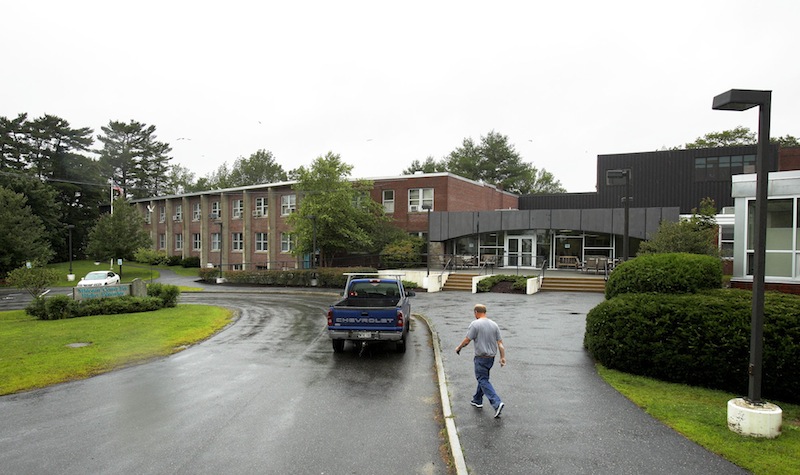BATH – Residents calling for an investigation into the sale of a city-owned building expressed outrage over the Bath City Council’s decision Wednesday to withhold some information about the sale process from investigators and the public.
The council voted 7-1 not to make public discussions and documents from a Feb. 6 closed session related to the city’s mid-April sale of a former hospital on more than five acres in downtown Bath. Only Councilor David Sinclair voted for the measure.
Other council members argued that releasing details about a closed, executive session would set a bad precedent and would be redundant because most of what was discussed already has been made public.
Since Bath officials announced the sale, a small but vocal group of residents has criticized them for offering the property to Phippsburg-based developer Robert Smith in a private meeting without listing the property for sale or seeking competitive bids.
Smith purchased the former Mid Coast Hospital on Park Street, now a multi-tenant office building called the Mid Coast Center, for $799,000.
The city’s critics believe it was worth at least $1.1 million. The property’s assessed value is listed as $6.5 million by the Bath Assessor’s Office.
The council voted unanimously on Aug. 7 to appoint an independent investigator to interview city officials about the sale, gather all relevant documents and produce a report to be made available to the public.
The purpose of Wednesday’s meeting was to work out the process for selecting the investigator, and to determine whether information related to the executive session would be subjected to scrutiny.
Larry Scott of Bath, a retired professional investor and one of the city’s chief critics, said Wednesday’s decision to keep the executive session private would render any proposed investigation pointless.
“What’s the point in doing an investigation if they aren’t giving out all the information?” Scott said after the meeting.
Michael Wischkaemper of Bath, an attorney and critic of the property sale, agreed.
“Without knowing what happened in the executive session, we can never know how this occurred,” he said.
City councils are allowed to hold executive sessions to discuss legal matters and other sensitive issues, including the proposed sale of city-owned real estate.
However, they also can “waive” an executive session once the information is no longer sensitive, such as after the property has been sold.
Bath City Solicitor Roger Therriault said the council should waive the sale-related executive session and make the information public, but the majority of councilors disagreed.
Councilor Meadow Rue Merrill suggested that proprietary information about the buyer was discussed during the session that the city has no right to make public.
“My concern is that there was information that was brought up that was not our information to divulge,” she said.
Councilor Sean Paulhus said waiving one executive session could create an expectation that other sensitive city matters also should be publicized.
“I have concerns that we will be setting a precedent,” he said.
Councilor Andy Winglass said making the information public would defeat the purpose of executive sessions, which he said are necessary for good city governance.
“Yeah, we are public officials, but we do private business through what we do,” he said.
Only Councilor Sinclair argued to release a public record of the private meeting, saying it was justified given the public’s desire to know how the property sale came about.
“I don’t see such a harm to the sanctity of executive sessions, generally,” he said.
J. Craig Anderson can be contacted at 791-6390 or at: canderson@pressherald.com
Twitter: @jcraiganderson
Correction: This story was updated at 10:55 a.m., Aug. 22, 2013, to correctly state the name of Phippsburg-based developer Robert Smith.
Send questions/comments to the editors.




Comments are no longer available on this story